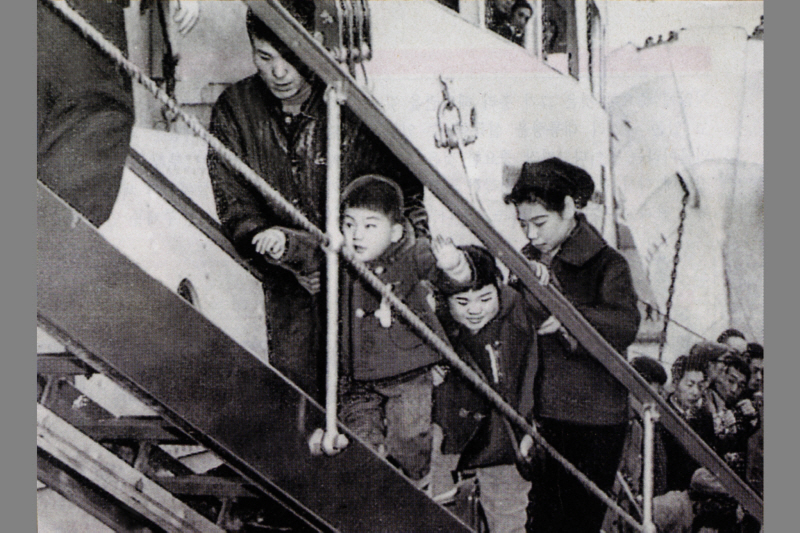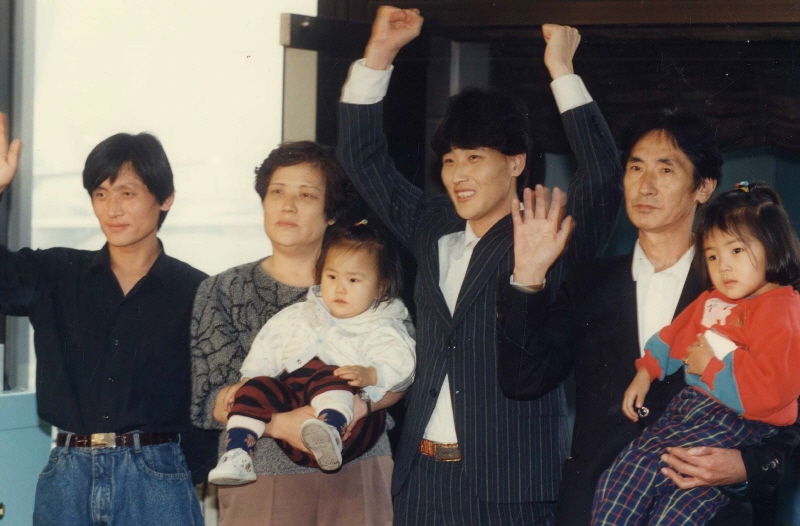On August 7, the Truth and Reconciliation Commission of South Korea acknowledged that Korean-Japanese individuals were deceived by false propaganda, believing they could live in an ideal society, or a “utopia,” if they moved to North Korea.
However, the reality was vastly different, leaving many in despair upon arrival. This marks the first time the government has officially recognized and investigated the human rights abuses experienced by these repatriates sent to North Korea.
The Commission revealed that from 1959 to 1984, a total of 93,340 Korean-Japanese individuals were repatriated through the efforts of the North Korean regime and the General Association of Korean Residents in Japan (Chongryon).

This decision to uncover the truth was initiated by applications from 17 repatriates or their descendants. The Commission’s findings confirm that significant human rights violations occurred against the repatriates.
Through extensive research, including analysis of official documents, diplomatic correspondences, related literature, and academic papers, the Commission found that most repatriates boarded the ships based on Chongryon’s propaganda.
The propaganda claimed that “North Korea was a utopia free from discrimination, offering equitable distribution and better living conditions than Japan.” They also claimed that North Korea is wealthier than Japan and has better protection of human rights.
However, one applicant stated, “Upon arrival, the reality was starkly different from Chongryon’s propaganda, leaving us in utter despair.”
According to the investigation, most repatriates and their families were assigned to rural areas like Hyesan in Yanggang Province instead of the capital, Pyongyang, and were closely monitored. There were also cases, such as a boy who went missing after demanding to be sent back to Japan and was later found in a psychiatric facility five years later.
Repatriates were forced to work on collective farms, in mines, and coal pits. The investigation also revealed that they were classified as hostile elements through background checks, leading to severe surveillance and discrimination.

Those who attempted to defect were tortured by the secret police and exiled to labor camps like the Aoji Coal Mine. Marrying outside the repatriate community often faced strong opposition from the local families, leading to further discrimination.
The Commission emphasized that the North Korean government and Chongryon bear the primary responsibility for these human rights violations.
However, it also pointed to the Japanese government’s responsibility in the repatriation events, highlighting that both the Japanese government and the Japanese Red Cross could have verified the true nature of the repatriation project but chose to support and perpetuate it, thus tolerating the human rights abuses.
Furthermore, the International Committee of the Red Cross (ICRC) was criticized for failing to adequately monitor and ensure the proper execution of the repatriation process, neglecting their role as intermediaries and advisors.
Heesok Shin, a legal analyst with the Transitional Justice Working Group (TJWG), remarked, “It is a dark chapter for Japan, a member of the so-called free world during the Cold War, to have not only neglected but also encouraged the repatriation of 90,000 Korean-Japanese residents to North Korea.”
He emphasized the significance of the Commission’s findings as the first governmental body to address this issue, which both North Korea and Japan have long ignored.
The Commission also called on the South Korean government, noting that while diplomatic efforts were made to oppose the repatriation until 1984, these efforts ultimately failed to prevent it.
They urged the North Korean regime to issue an official apology and to guarantee the freedom of movement and the right to verify the living conditions of the repatriates. Additionally, they recommended that the United Nations investigate the repatriation project and the plight of the repatriates and their families, incorporating the findings into historical records.
BY HYUNJU PARK, YOUNGNAM KIM [park.hyunju@joongang.co.kr]






